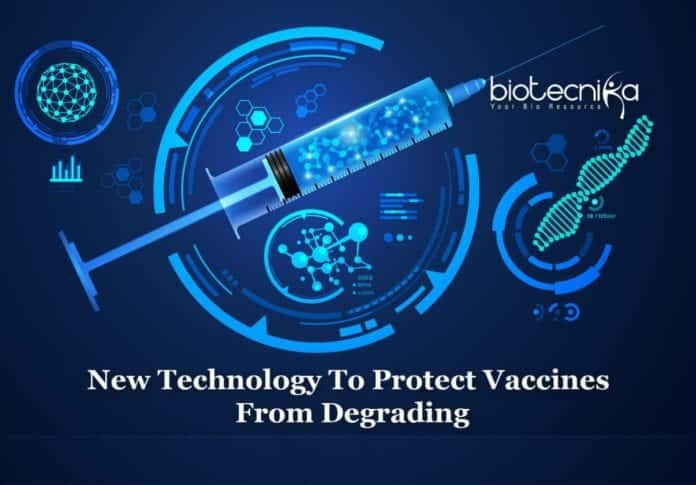Ensilicating Vaccines to Prevent Degradation While Storage and Transport
A new method for stabilizing proteins that could remove the need to refrigerate life-saving vaccines during transportation and storage has been developed by the researchers at the University of Bath, collaborating with the University of Newcastle. Half of the world’s vaccine doses can be prevented from having to be discarded using this new technology.
A process called ensilication that tailor-fit a vaccine with a silica coat could help millions of children around the world have access to vaccines. The researchers have demonstrated how ensilication technology can stabilize vaccines in real-world settings with the help of experiments in mice.
Asel Sartbaeva, who led the project, said the ensilication preserves the structure as well as the function of vaccine proteins.
Most of the biopharmaceuticals need to be stabilized to increase their shelf-life as they are proteins that are not stable ex vivo. Usually, they are stabilized by regulating their temperature. But due to this limitation, millions of children around the world miss out on vaccinations because of the challenges in regulating its temperature from the moment of manufacturing to endpoint destination.
Heating, freezing, or any fluctuations in temperature could lead to the loss
of potency of vaccines, and this is a major hindrance to achieving universal childhood vaccination worldwide.The ensilication technology developed by the U.K. scientists prevents the protein molecules from degrading, by effectively wrapping the molecules in a silica shell. The silica shell protects the molecules even if they are heated to 100°C or kept at room temperature.
To test their new technology, they sent both regular samples and ensilicated samples of the tetanus vaccine, from Bath to Newcastle, a distance of 300 miles through the postal system. It takes one or two days to reach Newcastle from Bath. Later, mice were injected with these vaccines to study their efficiency.
The results showed that the unprotected doses of vaccine triggered no immune response in recipient animals, while the ensilicated vaccine was found to be effective and triggered the immune response. This demonstrates that the ensilicated vaccine can be stored and transported at room temperature and can be heated without losing its immunogenicity. Therefore the ensilication of vaccines can overcome the challenges of vaccine transportation.
However, the scientists noted that the current technology required laboratory conditions for silica removal and subsequent dialysis, and this wouldn’t be practical in real-world clinical situations, especially in low-income countries. The researchers are now working on an alternative release method.
They are also planning to develop thermally stable vaccines for diphtheria and pertussis. Finally, they would like to ensilicate the whole DTP trivalent (diphtheria, tetanus, and pertussis) vaccine, so that it can be made accessible to every child in the world, without having to rely on cold chain distribution.
The ensilicated vaccines could be used in humans within 5-15 years. The team is hoping that the technology could be adapted to store and transport all childhood vaccines, antibodies, enzymes, and other protein-based products.
Editor’s Note; Ensilicating vaccines to prevent degradation, Preventing vaccine degradation while storage and transport.






























